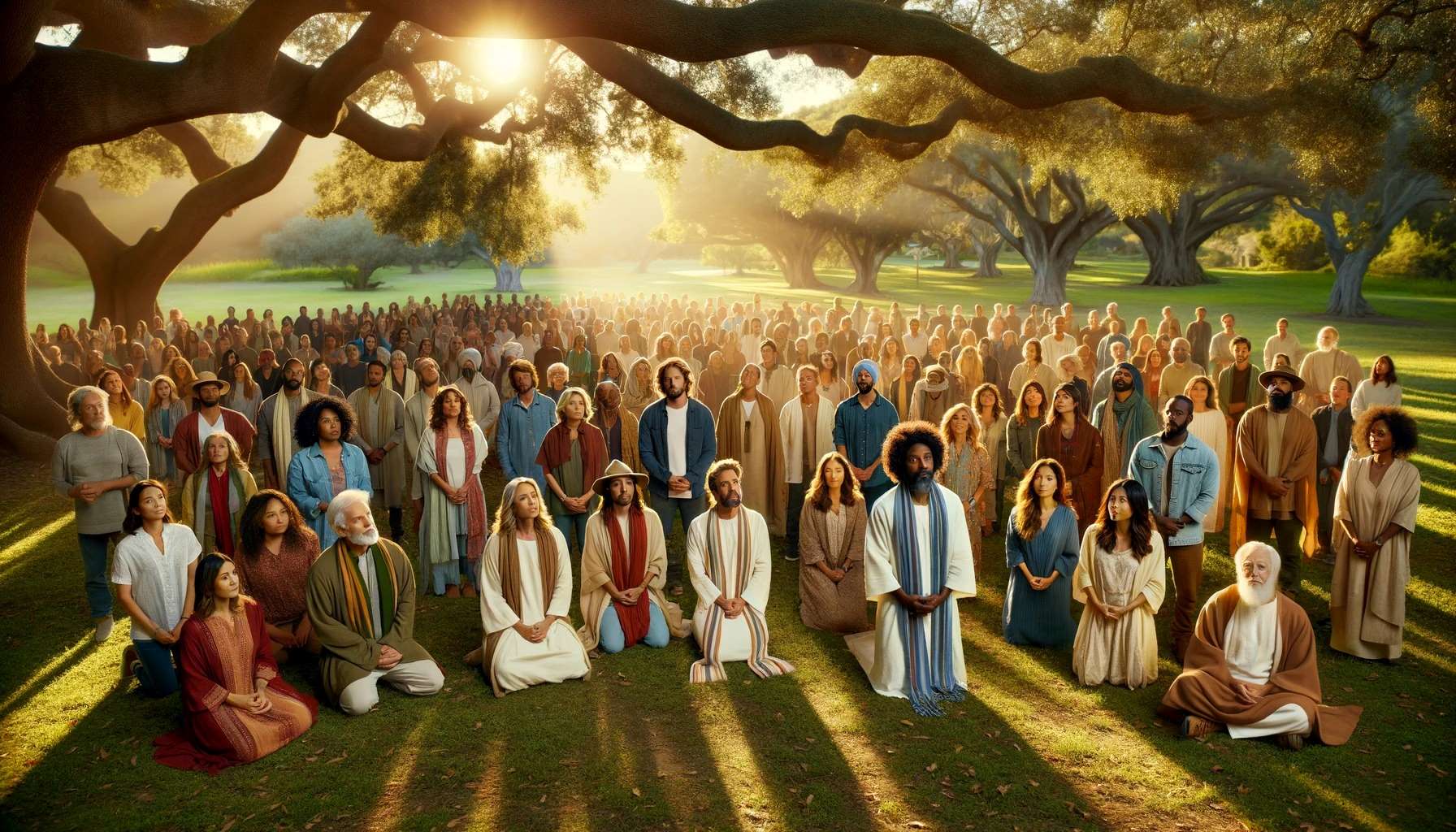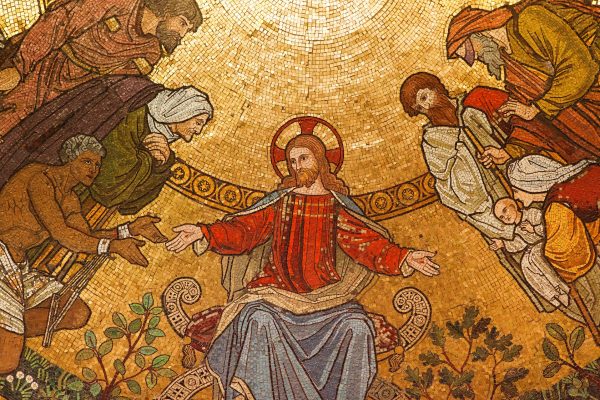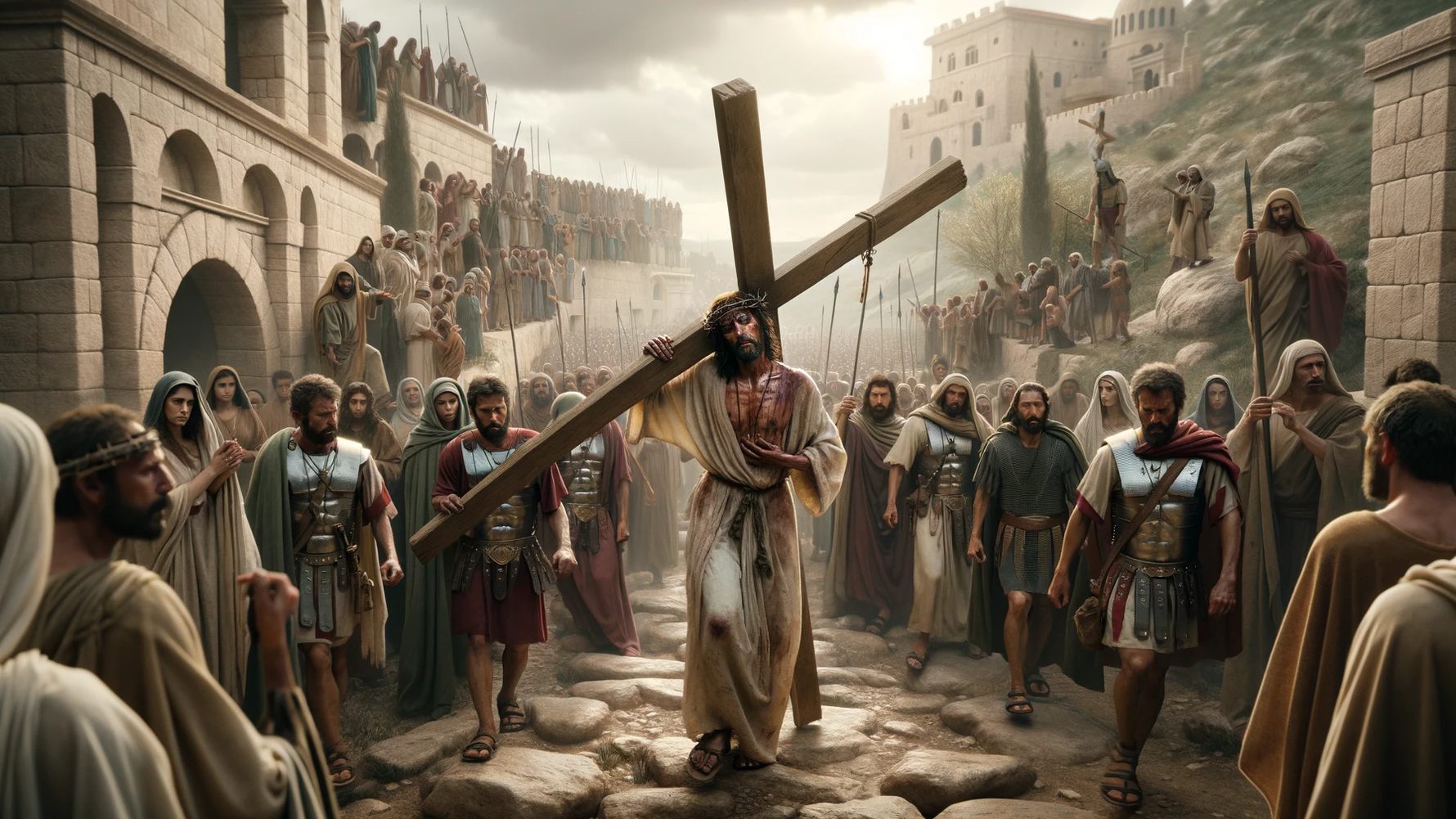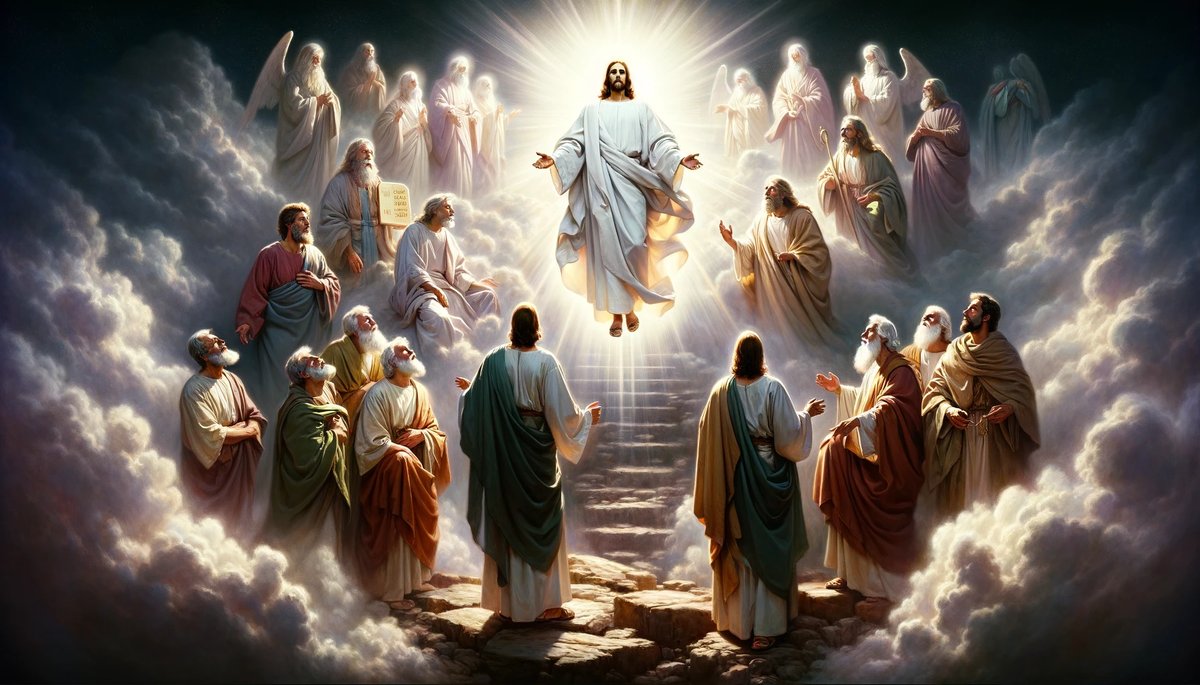Home>Christian Videos>Bible Stories>What Religion Was Founded By Jesus Christ
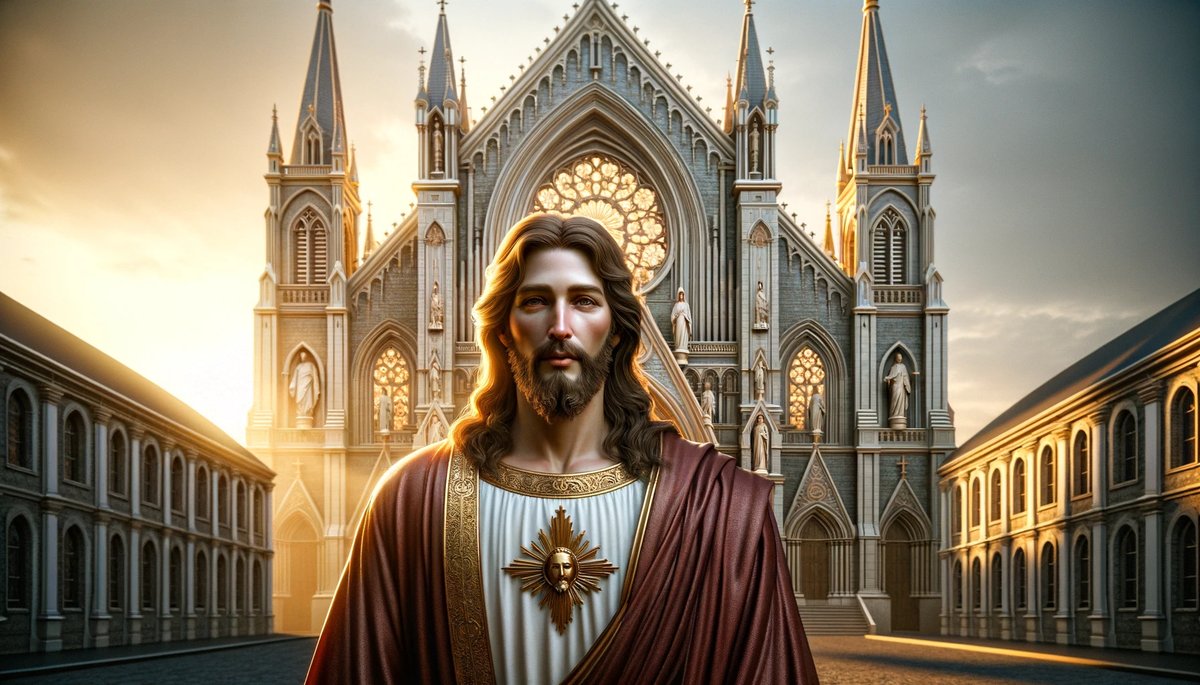

Bible Stories
What Religion Was Founded By Jesus Christ
Published: March 2, 2024
Peter Smith, Editorial Director at Christian.net, combines deep insights into faith, politics, and culture to lead content creation that resonates widely. Awarded for his contributions to religious discourse, he previously headed a major organization for religious communicators, enhancing dialogue on faith's societal impacts.
Discover the origins of the Bible stories and the religion founded by Jesus Christ. Explore the teachings and history of this influential faith.
(Many of the links in this article redirect to a specific reviewed product. Your purchase of these products through affiliate links helps to generate commission for Christian.net, at no extra cost. Learn more)
Table of Contents
Introduction
The religion founded by Jesus Christ is Christianity. It is a monotheistic faith centered on the life and teachings of Jesus of Nazareth, who is believed to be the Son of God and the savior of humanity. Christianity has become one of the world's largest and most influential religions, with over 2 billion followers worldwide. The teachings of Jesus Christ have had a profound impact on the world, shaping the beliefs, values, and cultures of countless societies throughout history. In this article, we will explore the origins of Christianity, its spread, the formation of Christian churches, and its enduring impact on the world.
Read more: What Is Jesus Christ’s Religion
The Teachings of Jesus Christ
-
Love and Compassion: Jesus Christ emphasized the importance of love and compassion for one another. He taught his followers to love their neighbors as themselves and to show kindness and empathy towards others, regardless of their background or beliefs.
-
Forgiveness and Mercy: Jesus Christ preached the value of forgiveness and mercy. He encouraged his followers to forgive those who wronged them and to show mercy to those in need, reflecting the divine forgiveness and mercy offered by God.
-
Humility and Service: Jesus Christ exemplified humility and service, teaching his disciples to serve others selflessly and to prioritize the needs of others above their own. He famously washed the feet of his disciples, demonstrating the importance of humility and servanthood.
-
Justice and Morality: Jesus Christ upheld principles of justice and morality, advocating for fairness, honesty, and righteousness in human conduct. He challenged societal injustices and called for ethical living in accordance with God's will.
-
Salvation and Eternal Life: Jesus Christ proclaimed the message of salvation and eternal life through faith in him. He taught that through belief in his sacrificial death and resurrection, individuals could attain forgiveness of sins and the promise of eternal life in the presence of God.
-
The Kingdom of God: Jesus Christ spoke about the Kingdom of God, a spiritual realm where God's reign is fully realized. He invited people to repent and embrace the Kingdom, offering hope for a transformed and redeemed existence.
-
Parables and Teachings: Jesus often used parables and stories to convey his teachings, employing vivid and relatable illustrations to impart moral and spiritual lessons to his audience.
Jesus Christ's teachings continue to inspire and guide millions of people worldwide, shaping their ethical values, moral conduct, and spiritual beliefs.
The Spread of Christianity
-
Early Expansion: Following the crucifixion and resurrection of Jesus Christ, his disciples and early followers, known as apostles, began spreading the message of Christianity. They traveled to various regions, sharing the teachings of Jesus and establishing communities of believers.
-
Missionary Efforts: The apostle Paul, in particular, played a significant role in the expansion of Christianity. He embarked on missionary journeys, traveling throughout the Mediterranean world, proclaiming the gospel and establishing Christian congregations in diverse cultural settings.
-
Roman Influence: The Roman Empire, with its extensive infrastructure and communication networks, facilitated the spread of Christianity. The Roman road system and the Pax Romana (Roman peace) provided favorable conditions for the movement of missionaries and the dissemination of Christian teachings.
-
Conversion of Constantine: The conversion of Emperor Constantine in the 4th century marked a pivotal moment in the history of Christianity. With the Edict of Milan in 313 AD, Constantine granted tolerance to Christians, and later, Christianity became the official religion of the Roman Empire under Theodosius I.
-
Monastic Missions: Monastic communities, such as those established by Saint Patrick in Ireland and Saint Augustine of Canterbury in England, played a crucial role in the Christianization of regions beyond the Roman Empire. Monks and nuns engaged in missionary activities, contributing to the spread of Christianity in distant lands.
-
Global Expansion: Over the centuries, Christianity continued to spread across continents through exploration, colonization, and missionary endeavors. European explorers and colonists carried the Christian faith to the Americas, Africa, Asia, and Oceania, leading to the establishment of Christian communities worldwide.
-
Translation of Scriptures: The translation of the Bible into various languages facilitated the transmission of Christian beliefs and practices to diverse cultural and linguistic groups. This enabled people to access the scriptures in their native tongues, fostering the growth and diffusion of Christianity.
-
Contemporary Evangelism: In the modern era, Christian missionary organizations and evangelistic movements have contributed to the global spread of Christianity. Through humanitarian work, evangelistic campaigns, and digital outreach, Christians continue to share their faith with people around the world.
The spread of Christianity has been a dynamic and enduring phenomenon, shaping the religious landscape of numerous societies and leaving a profound imprint on the history of humanity.
The Formation of Christian Churches
-
Early Gatherings: In the initial stages, Christian communities gathered in homes and synagogues to worship, pray, and study the teachings of Jesus Christ. These gatherings provided a sense of fellowship and mutual support among believers, laying the foundation for the formation of organized churches.
-
Ecclesiastical Structure: As Christianity expanded, the need for a more structured ecclesiastical organization became evident. The emergence of bishops, presbyters (elders), and deacons facilitated the administration of church affairs and the pastoral care of congregations. This hierarchical structure contributed to the stability and governance of Christian communities.
-
Councils and Creeds: The early Christian councils, such as the Council of Nicaea and the Council of Chalcedon, played a crucial role in defining the doctrinal beliefs of the church and addressing theological controversies. The formulation of creeds, such as the Nicene Creed, provided a unifying statement of faith for the Christian community.
-
Sacraments and Liturgy: The development of sacraments, including baptism and the Eucharist (Holy Communion), became integral to Christian worship and spiritual life. The establishment of liturgical practices and rituals enriched the communal worship experience, fostering a sense of sacred tradition and continuity.
-
Church Architecture: The construction of church buildings and cathedrals reflected the growing institutionalization of Christianity. Architectural elements, such as basilicas, domes, and spires, served as physical manifestations of the church's presence in society and provided spaces for congregational gatherings and religious ceremonies.
-
Monasticism and Religious Orders: The rise of monasticism and the formation of religious orders contributed to the diversification of Christian expressions. Monasteries and convents became centers of spiritual devotion, scholarship, and charitable work, influencing the broader ecclesiastical landscape.
-
Orthodox, Catholic, and Protestant Traditions: The historical development of Christian churches led to the emergence of distinct traditions, including Eastern Orthodox, Roman Catholic, and Protestant denominations. Diverse theological emphases, liturgical practices, and ecclesiastical structures characterize these traditions, reflecting the rich tapestry of Christian expression.
-
Global Expansion of Christianity: As Christianity spread to different regions and cultures, indigenous forms of Christian churches and ecclesiastical structures emerged. The contextualization of Christian faith within diverse sociocultural contexts gave rise to a plurality of church traditions, each contributing to the global mosaic of Christianity.
The formation of Christian churches represents a complex and multifaceted historical process, encompassing theological, institutional, architectural, and cultural dimensions that have shaped the identity and diversity of the Christian faith.
The Impact of Christianity on the World
-
Cultural Influence: Christianity has profoundly influenced the arts, literature, music, and architecture. Iconic works of art, such as Michelangelo's "The Creation of Adam" and Leonardo da Vinci's "The Last Supper," reflect Christian themes and narratives. Christian hymns, choral compositions, and sacred music have enriched the cultural heritage of societies worldwide. Architectural marvels, including cathedrals, churches, and monasteries, stand as testaments to Christian faith and architectural ingenuity.
-
Ethical Framework: The ethical principles espoused by Christianity have permeated legal systems, moral discourse, and societal values. Concepts such as human dignity, compassion, and justice have shaped ethical frameworks and social policies. The Christian emphasis on charity and social welfare has inspired philanthropic initiatives, humanitarian organizations, and advocacy for the marginalized and vulnerable.
-
Education and Scholarship: Christianity has played a pivotal role in the development of education and scholarship. Monastic institutions preserved and transmitted knowledge during the Middle Ages, laying the groundwork for the emergence of universities and centers of learning. Christian scholars have made significant contributions to fields such as theology, philosophy, science, and literature, fostering intellectual inquiry and academic pursuits.
-
Social Reform and Activism: Throughout history, Christianity has been a catalyst for social reform and activism. Movements for the abolition of slavery, labor rights, civil rights, and humanitarian causes have been fueled by Christian convictions of human equality, dignity, and justice. Christian leaders and organizations have championed efforts to alleviate poverty, combat injustice, and promote peace and reconciliation.
-
Global Missions and Humanitarian Aid: Christian missionary endeavors have contributed to the dissemination of knowledge, healthcare, and humanitarian aid in diverse regions. Missionaries have established schools, hospitals, and development projects, addressing social needs and fostering community empowerment. Christian relief organizations have responded to natural disasters, epidemics, and humanitarian crises, providing assistance and support to affected populations.
-
Political and Legal Impact: The Christian worldview has influenced political ideologies, governance structures, and legal systems. Concepts of human rights, democracy, and the rule of law have been informed by Christian principles of accountability, freedom, and the inherent worth of individuals. The Christian tradition has shaped the political landscape and the pursuit of justice and equity in various societies.
-
Interfaith Dialogue and Religious Pluralism: Christianity has engaged in dialogue with other religious traditions, fostering interfaith understanding, cooperation, and peacemaking. Initiatives for religious tolerance, ecumenism, and interreligious dialogue have sought to promote harmony and mutual respect among diverse faith communities, contributing to global efforts for religious freedom and coexistence.
-
Cultural Diversity and Globalization: The global spread of Christianity has engendered cultural diversity and intercultural exchange. Christian missionaries and communities have encountered diverse cultural expressions, languages, and customs, leading to the enrichment of global cultural heritage. The interaction between Christianity and indigenous traditions has given rise to syncretic forms of worship and cultural fusion.
The impact of Christianity on the world encompasses a wide spectrum of domains, leaving an indelible imprint on human history, civilization, and the collective consciousness of humanity.

